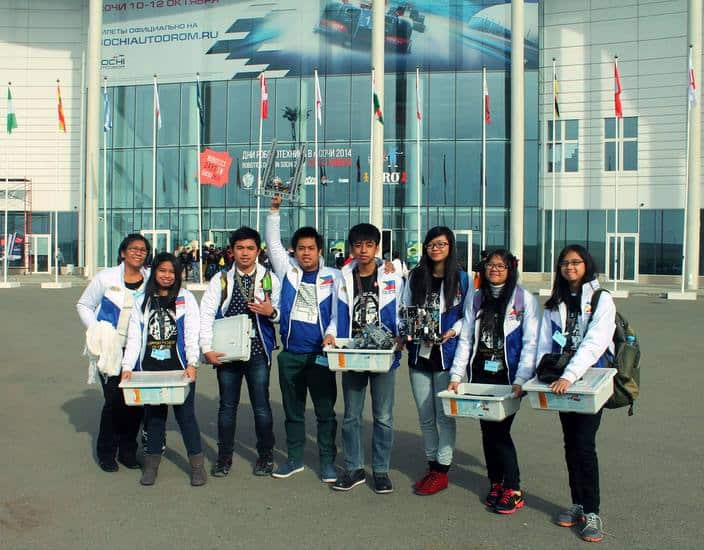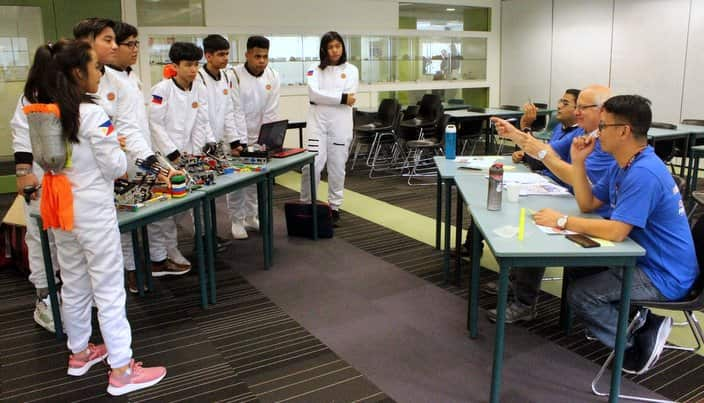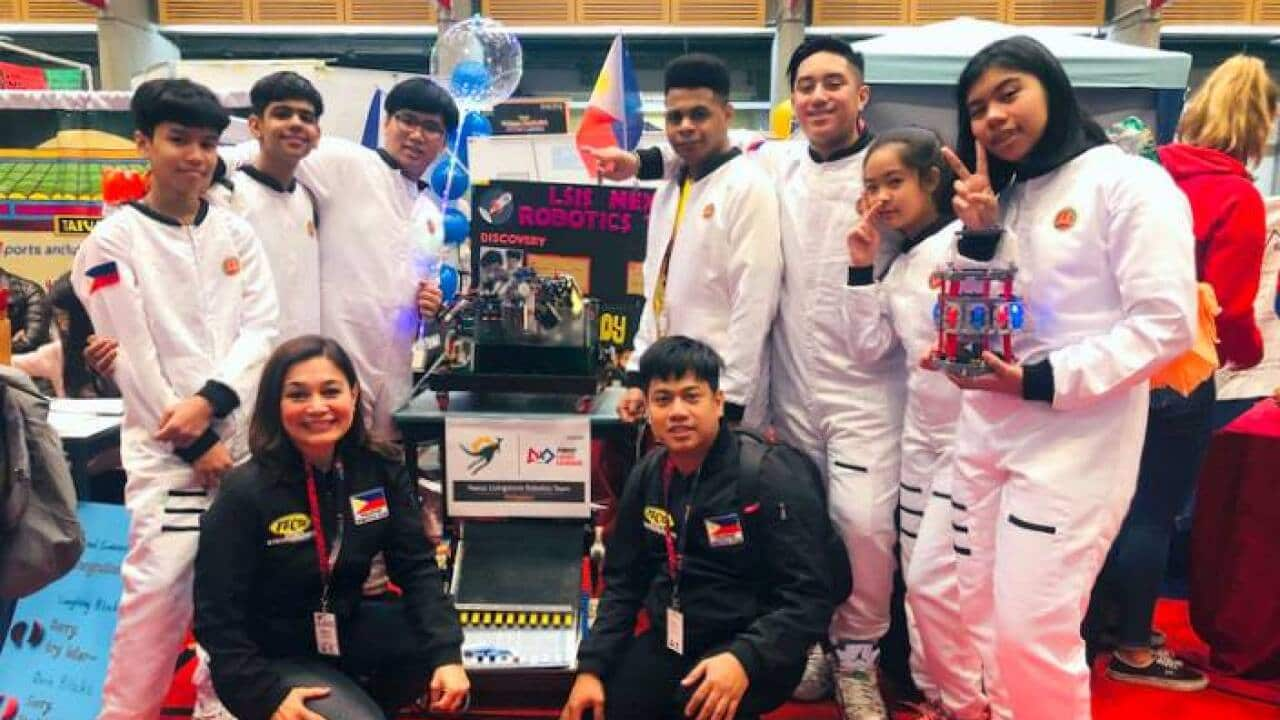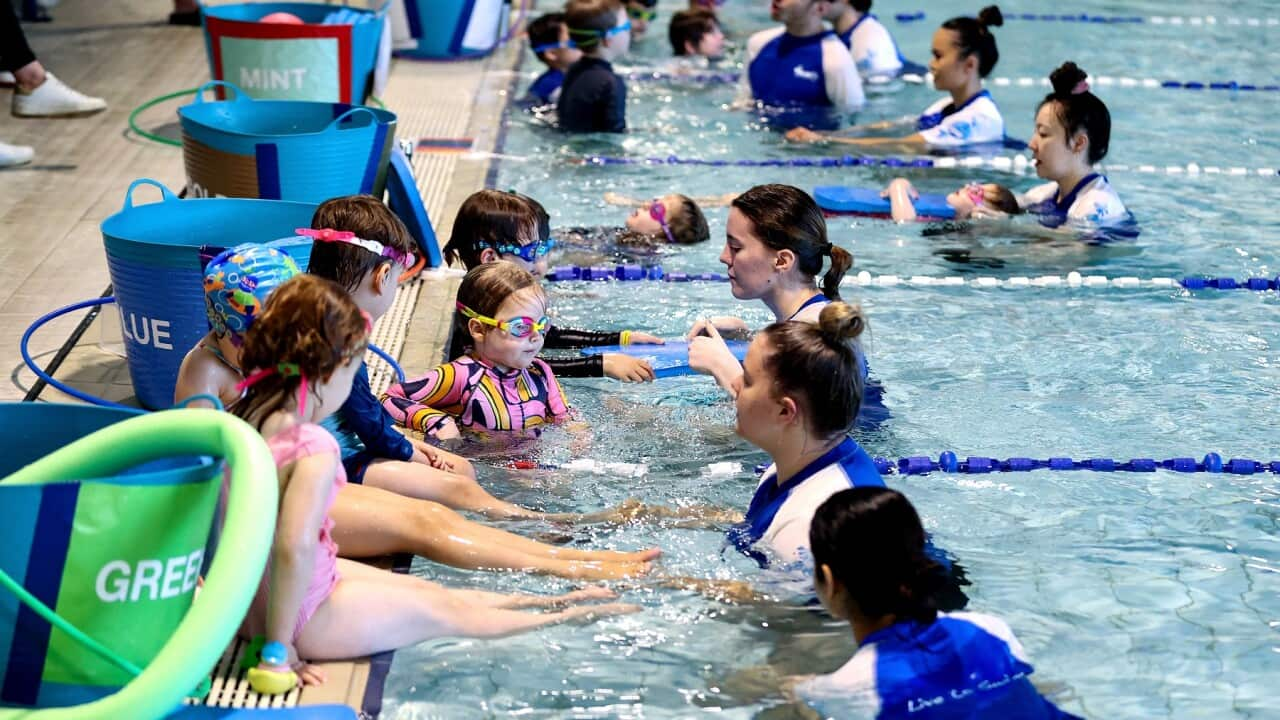Believing that as one big step to prepare students for the so-called fourth industrial revolution, many schools in the Philippines are amplifying technology-based subjects - like the STEM (science, technology, engineering and mathematics) and robotics - into their school curriculum. "Our school includes robotics in our curriculum from the 4th grade to the 12th grade. We cannot stop it (fourth industrial revolution) any more so we have to embrace it and help them (students) be prepared more," says Living Stone International School principal Amelita Tumagoy while in Sydney as their school was one of the two teams who represented the Philippines for the FIRST Lego League Asia Pacific Open Championships held in Sydney in early July.
"Our school includes robotics in our curriculum from the 4th grade to the 12th grade. We cannot stop it (fourth industrial revolution) any more so we have to embrace it and help them (students) be prepared more," says Living Stone International School principal Amelita Tumagoy while in Sydney as their school was one of the two teams who represented the Philippines for the FIRST Lego League Asia Pacific Open Championships held in Sydney in early July. The Robotics team from the said school had competed to six different countries - for the World Robot Olympiad in Russia in 2014 and in India in 2016; Costa Rica - 2017, China and Thailand, and to Australia in July 2019 for the FIRST Lego Leage competition - after winning top places in the national robotics competition in the Philippines.
The Robotics team from the said school had competed to six different countries - for the World Robot Olympiad in Russia in 2014 and in India in 2016; Costa Rica - 2017, China and Thailand, and to Australia in July 2019 for the FIRST Lego Leage competition - after winning top places in the national robotics competition in the Philippines.

Philippine national robotics team "NEXUS" ranked 3rd Place in the Teamwork Core Values Award over 43 teams from 21 countries at the FLL Asia Pacific Open in Sydney, 4-7 July 2019 (Michael John D. Cunanan) Source: Michael John D. Cunanan

Living Stone International School's NEXUS Robotics Team at Sochi Olympic Park in Sochi, Russia for the World Robot Olympiad in 2014 (Michael John D. Cunanan) Source: Michael John D. Cunanan
"As a school, we primarily believe that we are equally competent as those people outside the Philippines, other countries. What they can do we can do as well! It's only a matter of opportunity," adds school principal Amelita Tumagoy.

Members of the Philippine Robotics Team 'NEXUS' from Living Stone International School during the judging for the Robot Design category (Michael John D. Cunanan) Source: Michael John D. Cunanan
"We would like to see young Filipinos to be the authors of some programs, not only users of the games but creators of games, so all we have to do is to give them (students) opportunities to be really well-prepared. Who knows, maybe two years from now we will see a Filipino as one of the inventors of flying trains," hopes Mrs Tumagoy.





